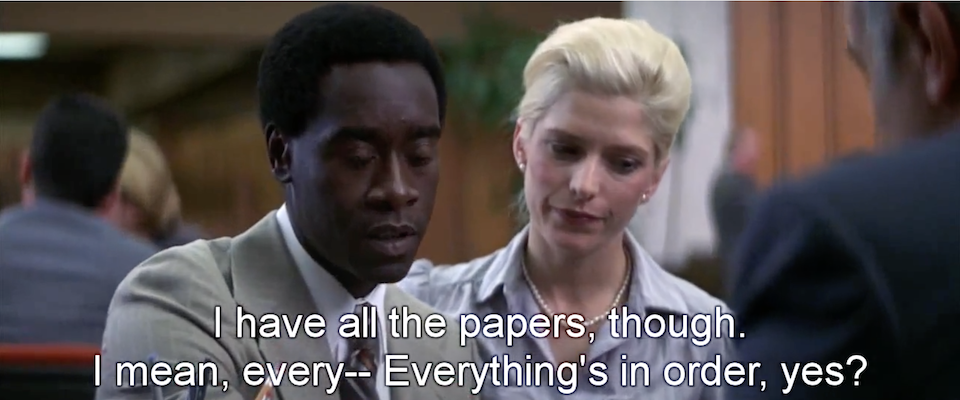LONDON — The editorial board of the Financial Times — arguably the world’s most influential news source for the banking, investment and overall finance industries — published an editorial yesterday offering “lessons for banks from the OnlyFans affair.”
The editorial is deliberately crafted to offer the trademark Financial Times vibe of a measured, old-school establishment response. The London-based business news outlet, whose website mimics the idiosyncratic dull pink color of its print product, prides itself on talking to readers in a no-nonsense, sober tone that is comfortingly (for them) pro-business, anti-regulation and conveys a “man of the world who’s seen it all and is above it all” manner.
The Financial Times projects the illusion of a dark-paneled private club where the reader may approach an old banker, bred and raised in “the City” — London is still the financial capital of the known universe, a lasting vestige of the long-gone British empire and its customs — and ask, “Well, old chap, what’s this ‘OnlyFans’ business all about?”
Yet if you cut through the virtual cigar smoke that shrouds its “clubbable old boy” statements, the Financial Times editorial grossly mischaracterizes the issues around banking discrimination against sex workers and adult businesses. It also compares sex work and adult content to dangerous environmental pollutants, and parrots sensationalist pieces by The New York Times and the BBC alleging a non-existent “proliferation” of illegal content on adult sites.
The Old Circular Argument
The subhead of the editorial soberly warns its readers in the banking sector that working with the porn industry “can pose legal as well as reputational risks." This is factual enough, but what that pithy summary neglects to mention is that biased and misguiding news products such as this editorial are precisely what produce such “reputational risks” while inspiring legislation that amps up the legal risks.
It’s the old circular argument favored by censors, prudes and well-paid religious anti-porn activists: reputable banks should not do business with sex workers or porn because they have been known to look for alternative forms of financing — which sex workers and porn are forced to resort to because reputable banks won’t do business with them.
One of the best moments in Paul Thomas Anderson’s “Boogie Nights” is a heartbreaking scene depicting blatant banking discrimination against sex workers in the porn business. The movie premiered in 1997 and depicted events from twenty years earlier. Unfortunately, not much has changed in 2021.
The Claim That Porn Is Worse Than Coal
The Financial Times editorial board frames its argument in favor of continued discrimination by equating the deceptive campaigns of religiously motivated groups like NCOSE (National Center on Sexual Exploitation, formerly known as Morality in Media) and Exodus Cry — which have as their avowed goal to “eradicate all pornography” — with the so-called “woke” actions of environmental activists.
The editorial literally compares access to legal porn to irreversible damage to the environment, harmful pollution and other factors contributing to the current global climate change crisis.
“Many liberal activists have welcomed banks’ increasing rhetorical embrace of the environmental, social and governance agenda,” the Financial Times editors declare. “But an aggressive stance towards pornographers and sex workers has triggered concerns over banks and payment companies adopting the role of censorious moral guardians.”
“The argument for banks to stay away from porn is, if anything, stronger than staying away from coal,” is the Financial Times’ take on that dubious comparison. Apparently the editorialists feel that banks should discriminate against sex workers and adult businesses before worrying about taking measures to clean their portfolios of known pollutants.
A closer reading of the language in the editorial makes it clear that the Financial Times has decided to two-side the issue between something the “left” doesn’t like (environmental damage) and something the “right” doesn’t like (porn). As the mouthpiece for the most traditionalist business establishment in the world, the Financial Times doesn’t even need to spell out which of those two “sides” it favors.
Anti-Porn's Big Lie: 'Proliferation' and 'Prevalence' of Illegal Content
In the very first lines, the editorial initially seems to telegraph more libertarian-leaning intentions: “If a bank has to pay attention to its social responsibilities beyond making a profit, there is no guarantee that it will share your view of what those responsibilities are.” Meaning, if you tell banks and investors to practice “social responsibility,” this leads to a slippery slope towards corporate censorship.
Now, this all sounds “business libertarian” and laissez faire enough — after all, the U.S. libertarian magazine Reason is known to produce some of the best reporting about freedom of speech and freedom of sexual expression. But that’s not where the Financial Times editors have decided to go with this.
The gist and slant of the editorial is not “Down with corporate censorship” or “Social pressure should never affect business decisions.” It’s “We don’t like corporate censorship, but if it has to happen — and it seems like it does — banks should ban sex workers instead of coal.”
The key word the Financial Times uses to drive this point home is “proliferate.”
“Beyond the debate over the social harms from constant, easy, and cheap, access to such images, many purveyors have inadequate moderation that has allowed illegal content — including underage performers and revenge porn, posted without the consent of all participants — to proliferate,” the editorial continues. “Banks dealing in illegally-earned money risk enabling money laundering and could face their own visit from the authorities.”
The Financial Times used a similarly inaccurate word, “prevalence,” last week, when it obtained an exclusive interview with OnlyFans CEO Tim Stokely blaming banks for the then-still-unreversed adult content ban.
“Opposition to the porn industry has taken on new life in recent years, with a string of high-profile media investigations into the prevalence of child pornography and other non-consensual footage on so-called tube sites,” the paper wrote.
To be clear, nobody has ever shown that there is a “proliferation” or “prevalence” of illegal content on third-party user upload sites, be they adult or mainstream, because it’s simply not true.
The only people claiming that there is “proliferation” or a “prevalence” of illegal content on these sites are the mouthpieces for anti-porn groups like NCOSE and Exodus Cry, furthering their own faith-based agendas — and the mainstream journalists who platform them, most famously the New York Times’ Nicholas Kristof.
Who does the Financial Times marshal as evidence of this “proliferation”? You guessed it: “Visa and Mastercard stopped serving Pornhub, one of the main platforms, after a New York Times investigation showed the scale of revenge porn featured on the site,” the editorialists state.
The 'Children' of Nicholas Kristof
Kristof’s incendiary, emotionally exploitative “The Children of Pornhub” was not an “investigation” in any accepted sense. It offered a handful of anecdotal examples pointing at a (very real) moderation problem with the tube site, and then regurgitated Exodus Cry talking points about how they should be defunded and prosecuted.
The Financial Times editorial also links to “a BBC investigation into OnlyFans [which] suggested that its approach to illegal content is lax, giving accounts that post content against its guidelines multiple opportunities to comply and being especially lenient with the most popular accounts.”
This refers to a piece published on the same day OnlyFans announced the porn ban, written by BBC Senior Investigative Journalist Noel Titheradge, which definitely “suggested” what the Financial Times said, but offered no clear evidence of any “proliferation” of illegal content. Titheradge tweeted his story out, boasting that it was he and his “investigation” that had resulted in OnlyFans’ porn ban. The BBC News editors initially backed him up, deceptively headlining “OnlyFans: Platform to ban sex videos after BBC investigation.” But later, quietly, they changed the headline to the awkward “OnlyFans: How it handles illegal videos — BBC investigation.” Neither Titheradge nor the BBC ran a correction statement about the headline change.
Should the Financial Sector Be Casting 'Reputational' Stones?
The last section of the Financial Times editorial returns to what they call “reputational concerns.”
“There is a business imperative to anticipate pressure from other consumers,” the paper tells its financial sector readers. “This is not limited to environmentally damaging projects, but to any that could lead to disparaging headlines. […] That some groups in the US are putting pressure on payment companies — aware that the policy decisions of Mastercard and Visa can extend further than the reach of U.S. law — should be no surprise when environmentalists already adopt similar tactics.”
It’s notable that the Financial Times omits any mention of the nature of “some groups,” or their intentions to “eradicate” an entire legal industry and actively put in danger the lives and livelihoods of sex workers worldwide during a pandemic.
“The market allows for businesses to do what they think is in their best interests, including setting their own tolerance for compliance risks — in dealing with porn sites with less-than-perfect moderation — or reputational risks,” the FT concludes before offering adult businesses and sex workers a pie-in-the-sky solution:
“Just as some institutions are all too eager to ignore ESG [Environmental-Social-Governance] concerns and focus on whatever is profitable so, too, will many banks find the multibillion-dollar porn industry too lucrative to ignore, whatever the wider impact.”
In other words: “Relax, sex workers. You’ll be all right. After all, there’s always a bank somewhere that will offer you services at exorbitant ‘risk’ rates. Or crypto, or whatever. Just stay away from the credit cards and banking services that we in the reputationally unsullied mainstream financial sector, and your friends and neighbors, are free to use.”








